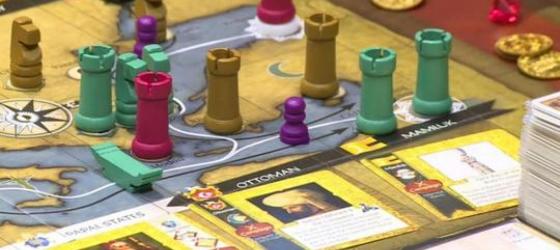CeRG is a Research Center established within the Department of Political and International Sciences (DISPI) at the University of Genoa.
CeRG's activities revolve around research on games, encompassing a wide range of interpretations. The breadth and flexibility of the concept of "game" or "regulated ludic activity" partially render its research scope indefinite, but precisely for this reason, it allows for the integration of inherently interdisciplinary and multidisciplinary approaches. Games can be considered subjects of creation and investigation both by the humanities and social sciences and by the physical, natural, and life sciences. The same can be said for games (videogames, board games, role-playing games) when considered in their nature as a medium, i.e., a "cultural" product with various purposes, such as knowledge transmission (game-based learning, edutainment, serious games, educational innovation), skill and knowledge acquisition, interpretation of reality, socialization, social interaction, and social change (games for change), and more.
Moreover, game dynamics also interest the economic, political, and social systems, concerning market areas as well as pathological aspects inherent in a risk and reward mechanism.
CeRG aims to study these multiple and diverse aspects and also to disseminate and promote the culture of gaming and its applications in different fields, actively carrying out what is envisaged by the Third Mission action (engagement with society beyond academia).
CeRG aims to bring together the various competencies present in different related subjects in these areas and to pool the multiple operational skills, theoretical knowledge, and various methodological approaches.
The main activities of the Center include:
- Research on games in their broadest interpretations
- Organizing seminars, workshops, conferences, debates, training courses, research projects, and experiments
- Promoting interdisciplinary studies by encouraging the formation of a network connecting researchers from different disciplinary fields and fostering synergies and collaborations with other national and international research institutes and organizations
- Publishing conference proceedings, books, documents, articles, and essays in scientific journals to illustrate and disseminate research results
- Providing training for teachers and educators engaged in edutainment Game Based Learning activities
- Establishing a University ludoteca (game library) as a place for socialization and research on gaming-related topics
- Organizing and promoting outreach events aimed at a broader audience
Research Areas:
- Game-based learning and the application of games in education (secondary school and university)
- History of games
- Analysis of the psychological impact of game use
- Ethical aspects of game design
- Transferable skills and games
- Pathological gambling, economic costs, and social implications of pathological and problematic gambling.
